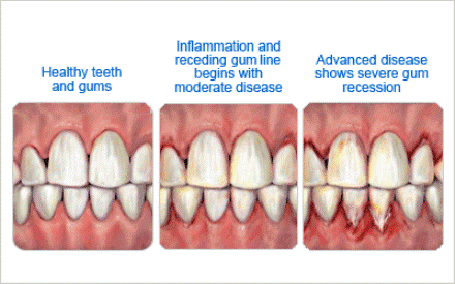Periodontal Disease
Periodontal disease, also known as periodontitis or gum disease, is a bacterial gum infection that destroys the gums and the bone supporting your teeth. The main cause of periodontal disease is a bacterial plaque- a sticky, colorless film that constantly forms on your teeth. If the plaque is not removed, it can turn into tartar. The bacteria found in plaque can infect the gums and release toxins that cause redness and inflammation. If they are not eliminated, the inflammation and toxins can destroy the tissues that support the teeth. When this happens, the gums separate from the teeth, forming pockets that fill with even more plaque and causing more infection with possibility of tooth loss or discomfort.
If diagnosed and treated in the early stages, simple non-surgical periodontal therapy such as scaling, root planning, and antibiotic therapy may be sufficient. If periodontal disease had advanced to the point where the periodontal pockets are deep and significant amounts of bone are lost, surgical therapy may be necessary. Dr. Khanh will advise you which therapy will best suit your needs after an initial x-ray and exam.
Links:
CDC: Periodontal Disease
